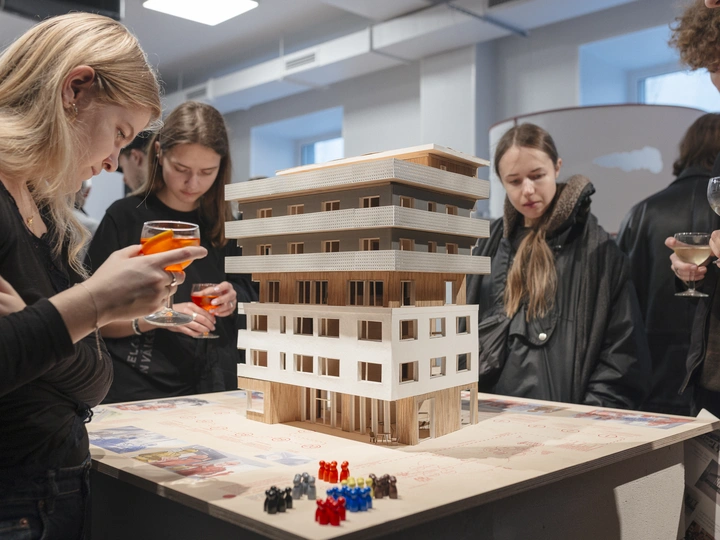Creative pragmatism: everyday architecture

Tristan Krevald
Ra Martin Puhkan
Siim Tanel Tõnisson
Studio TÄNA was founded in 2021 by a group of architecture students from Estonian Academy of Arts. After graduating they have been active in a wide range of topics - from planning and designing public spaces to curating exhibitions and tutoring at university.
Studio TÄNA is focused on keeping such an extensive variety of activities while focusing on site-specific, reasonable solutions and keeping the user and social context in the very core of the design.
Studio TÄNA has four architects: Kertu Johanna Jõeste, Ra Martin Puhkan, Siim Tanel Tõnisson and Tristan Krevald. In addition to getting their Msc at Estonian Academy of Arts, they have studied architecture in Aarhus, Helsinki, Jerusalem and Budapest as well as doing an internship in Ghent. Studio TÄNA architects are active in Estonian Association of Architects.
Notable achievements:
2025 Welcome home, housing crisis! Exhibition curators
2025 Jõhvi central area competition – I prize
2024 Nominee for Young architects prize at the annual Estonian Architectural Awards gala
2024 Koidu street architecture competition - I prize
2023 Tartu mnt 86b architecture competition - I-II prize
2021 Sõmeru central area competition – I prize
Operating often in the context of the periphery, scarcity and shrinkage, our design ideology has centered around compromise, pragmatism and simplicity. An emphasis on user experience, social and cultural environments has led us to the ideology of everyday architecture as something simple that frames our life, rather than offers monuments or spectacles. This kind-of-vernacular approach to architecture raises questions about the role of the architect in the production of our living environment. As the designer-architect withdraws, the role of the bureaucrat, politician, community member, entrepreneur or manager appears. Recognizing these massive shifts of power within the discipline, we are interested in investigating the role of the architect in the postsocialist and postneoliberal landscape of Europe.
Our practice revolves around these areas of interest, ranging from social initiatives and exhibitions to teaching, researching the renovation of mass housing typologies, and engaging in planning and public space projects in smaller municipalities.